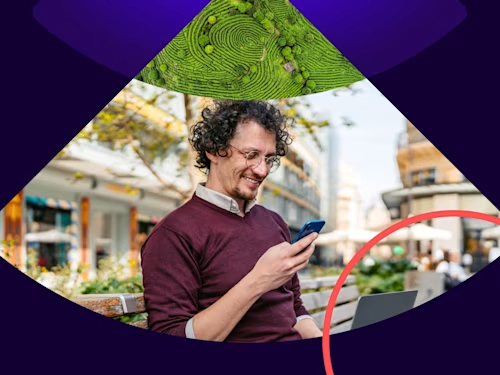
What is the future of online identity verification?
You may need to verify the identity of an electronic signer in order to make the process more secure and meet certain regulatory or compliance requirements.

There are times when your business will need to verify the identity of an electronic signer in order to make the process more secure and meet certain regulatory or compliance requirements. Identity verification is having to evolve in line with technology developments and to stay ahead of online threats, as they grow in sophistication.
Why is online identification getting more and more intrusive?
There are a number of ways that users can verify their identity online and these may require the use of facial recognition tools, video calling and use of personal information.
The process might seem like it is becoming more intrusive, but it needs to be in order to gain the trust of businesses and their customers. There are plenty of stories about people exploiting the anonymity of the internet to pose as others online.
When it comes to using electronic signatures, businesses are becoming more aware and are imposing stricter identity checks, especially for confidential documentation, or for anything that needs to meet international laws.
While it might seem unnecessary if clients and customers feel like the digital signing process used by a business is safe, they are probably more likely to continue using the services of that business. If you do start needing more intrusive forms of online verification, then it may be wise to explain to customers why it’s necessary, before going ahead and asking them for personal information.
What is the future of identity verification?
As online identity verification is driven forward by advances in technology, it’s also worth considering what the future holds. Unfortunately, there’s no crystal ball to hand. But we do know there are some interesting developments when it comes to the future of identity verification:
Real-Time ID Verification
Real-time ID verification will enable your business to access and process information about a client in a matter of seconds. This is particularly useful for confirming IDs or financial transactions as it ensures a company has up-to-date information.
Biometrics – fingerprint, facial recognition
Biometric tech looks set to be a winner among future identity verification tools, especially as Apple is already using fingerprint and facial recognition in its iPhones. With biometric tech already proving beneficial to personal security and ID verification, it stands to reason that it will also offer a safe and secure way to verify electronic signatures in the near future and reassure your business that whoever is signing is who they say they are.
Verifying an identity without an ID
There are various ways in which to authenticate a signature without relying on ID. If the signer does not have an ID then knowledge-based verification can be used. Alternatively, you are likely to see mobile phone authentication used more in the future, by sending an access code or SMS to a mobile number, or using the phone itself as a form of ID.
The Docusign Agreement Cloud and the future of online identity verification
Our goal is to help you streamline processes, reduce risk, and remain compliant, which is why we want to keep you one step ahead of tomorrow’s identity verification challenges.
Market research from Experian shows that the number one reason customers abandon transactions is a lack of visible security. Essentially customers need to feel like they are being safe and that your business is secure. That’s why we have fully integrated Docusign Identify with Docusign eSignature, enabling you to securely check signers’ identities with a variety of methods such as digital ID Verification of official government documents and electronic IDs, SMS, phone and access code..
To future proof your ID checks, the Docusign Identify platform is an open API, plug-and-play system that allows you to configure any type of identification process into Docusign eSignature workflows. You can integrate your own custom-built solution, or you can use an ID solution from a trusted third-party partner that is already integrated with Docusign.
Summary: What is the future of online identity verification?
The future of identity verification will see the development of multiple more advanced forms of authentication, and including biometrics, that are easy for businesses to embed in their current systems. This will streamline the e-signature process and should ensure businesses remain compliant and secure.
Related posts
 Insights for LeadersUpdated 11 Feb 2025
Insights for LeadersUpdated 11 Feb 2025

8 Contract Management Trends to Watch in 2025
Discover what's new with Docusign IAM or start with eSignature for free


